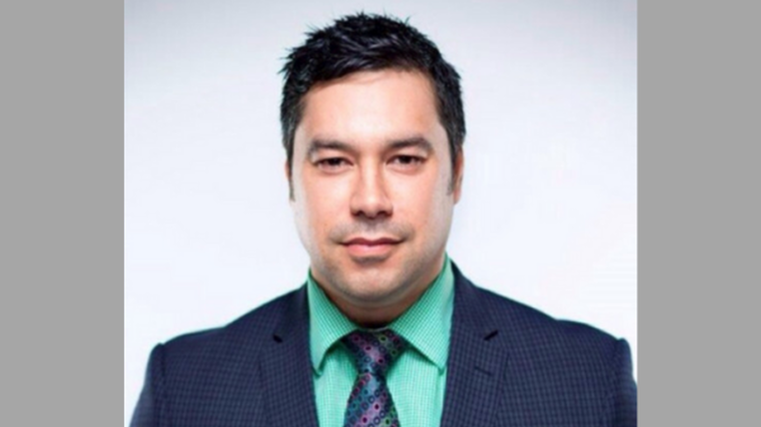Waka Kotahi unveils funding model

Waka Kotahi has set up a dedicated online portal explaining proposed changes to its regulatory funding and fees.
Consultation has formally opened on the way forward following an 18-month review with submissions closing on May 13.
The transport agency says it’s developing a new funding model to enable it to improve compliance and safety outcomes, as revealed by Autofile Online on March 15.
It’s based on the principle that everyone who creates risk in the land-transport system, or who receives direct benefits from being part of it, contributes to funding its regulation.
More detailed information about the proposals can be found in the consultation document online at www.nzta.govt.nz/funding-and-fees, along with fact sheets on all of the proposals and their impacts on businesses and households.
Kane Patena, director of land transport, says: “The review of our funding and fees was prompted by the release of two independent reports in 2019, which found gaps and weaknesses in our regulatory system contributed to the 2018 death of a passenger travelling in a vehicle that had just received a warrant of fitness [WOF].
“The review identified most of our fees and charges do not reflect the cost to regulate or provide regulatory services. It also confirmed our current funding situation is unsustainable.
“This is the first comprehensive review of fees and charges Waka Kotahi has done since before the agency was established in 2008. We have not raised most of our fees since – not even adjusting them for inflation, or for changes in regulation or legislation.”
Under the new model, the transport agency’s regulatory functions will be “appropriately funded and New Zealanders will meet the cost of regulation fairly with the right people paying for the right things”.
Patena, pictured, adds the proposals make up the funding model and include suggested changes to government funding, along with changes to the amount Waka Kotahi charges for its services. “Some of these proposed changes impact industry, in particular.”
The agency has spent 18 months reviewing its fees, charges and funding, and has confirmed how much it costs to do its work as regulators, and to monitor the agents, individuals and companies who do some of this work, such as VINZ, the AA, VTNZ and independent mechanics.
The review found the costs of regulation have been unfairly placed on driver-licence holders and vehicle owners with 97 per cent of revenue collected coming from fees.
“This means some people and companies have been paying more than they should for services, some have been paying less, and some haven’t been paying at all,” says the agency.
“Waka Kotahi doesn’t currently have a way to recover costs for more than one-third of our regulatory products – vehicle-identification number approvals, vehicle chassis ratings (new, used, and light), and additional transport service licence [TSL] labels to name a few – even though it costs us money to provide them.”
Motor-vehicle certifiers
A host of changes are being lined up for motor-vehicle certifier activities when it comes to fees and charges. This affects in-service certifiers of WOFs and COFs, heavy-vehicle certifiers, low-volume vehicle certifiers, repair certifiers, border inspectors and entry certifiers.
The agency wants to remove application fees for certifiers and replace them with charges. There will be changes to charges for vehicle certifiers – those who inspect vehicles and issue WOFs, COFs, border inspectors, entry and specialist certifications. In addition, seven charges will be changed.
Waka Kotahi says it wants to do all this because “current charges are based on rates set several years ago so they don’t reflect the cost to regulate and provide those services today” and “some groups aren’t paying their fair share for services they receive”.
Access to agency data
There will be alterations to charges for commercial users and councils accessing Waka Kotahi data.
This affects approved commercial data users, companies that want to connect to its data systems, and councils and council-controlled organisations (CCOs) that access its secure data for vehicle and driver information held on the motor-vehicle register (MVR) and driver-licence register (DLR).
The agency wants to introduce a set charge for MVR data users, decrease the DLR user charge, replace some fees with fixed charges and establish a way to recover costs from businesses that want to connect to its systems in the future.
It also wants to clarify regulations so Waka Kotahi can charge councils and CCOs using the MVR for parking enforcement and related safety infringements, such as expired WOF and lapsed rego.
Waka Kotahi has no other way to recover the costs of providing data to councils and CCOs. It adds: “No changes are proposed for central government agencies and the wider state sector – or entities acting on their behalf – using data for law-enforcement purposes, like NZ Fish and Game councils and the SPCA. We’re not proposing any changes to our connections enabling open data or to data privacy standards.”
Driver licence & testing proposals
• The average amount paid for each stage of a licence – learner, restricted and full – goes down. The current price of each stage of a licence has been averaged because most people sit a test more than once.
• The amount paid to renew a driver licence drops, removing re-sit fees for licence tests and increasing the cost to apply for an exemption.
• Removing automatic entitlement to refunds or part refunds for class endorsements.
• The cost of one-year P (passenger), V (vehicle recovery), I (driving instructor) and O (testing officer) endorsements goes up. The cost of five-year P, V, I, and O endorsements goes down.
The agency says changes are needed because current fees for driver licensing are too high, reducing the fee and removing re-sit charges should help people get licences and move through the system quicker, to recover the admin costs for issuing, and monitoring and renewing licence endorsements.
Vehicle licence and registration fee proposals
• Changes to many fees for motor-vehicle licensing and registration.
• Increasing the amount paid to renew rego and to register a vehicle for the first time.
These proposals are to ensure fees charged reflect the actual costs of providing services.
Transport service licence proposals
• Decreasing the fee for new TSL – single applicant – with one controlling person, increasing the change for new TSL – multiple applicants – with two or more controlling people, and changing TSL fees to charges.
• Recovering costs for the regulation of dangerous goods from goods-service licence and rental-service licence holders through a charge.
The agency says these changes are needed to make fees paid reflect actual costs of providing services, to reflect the regulatory activities and risks in this area and to ensure groups pay their fair share.
It adds they are also needed to include the costs of regulating licence classes most likely to carry dangerous goods and rental vehicles hired out to carry goods or passengers.
Road-user charges (RUC) admin proposals
• Changing the admin fee paid when buying RUC distance licences.
• New fees to change odometer and hubodometer. These proposals only impact fees relating to RUC admin, not rates themselves. Extra changes may be needed resulting from the 2022 consultation Driving Change: Reviewing the RUC System.
These changes are needed to ensure “fees paid reflect actual costs of providing the services and everyone is paying their fair share”.
Electronic RUC (eRUC) proposals
• New application and approvals fee for new eRUC providers.
• New fees for modifications and requests for approval using new technology and innovation.
• The introduction of a set charge for eRUC providers.
“There’s been a significant increase in our costs to provide services for eRUC since fees were set,” says he agency. “We’ve expanded services we provide, such as investing more in monitoring eRUC activity, face-to-face meetings and processing provider applications.
“These additional services cost money. We’re introducing a set charge for eRUC providers to recognise the business benefit they get from RUC systems – systems that cost Waka Kotahi money to maintain.”
The big picture
“All the work we do costs money,” says Waka Kotahi. The money that pays for its work currently comes from
• Fees, like the amount paid when applying for a driver licence.
• Charges paid by groups in the transport industry to contribute to the cost of regulating them.
• Government funding for things that benefit all Kiwis, such as subsidies to make licence renewals more affordable for older drivers.
“The money we get from these sources should cover the total costs of providing services, but it doesn’t,” says the agency. “We need to make sure we have enough money to do our job properly. We now know exactly how much it costs us to do our job as regulator. We need $100 million more each year than we get right now from fees, charges and government funding.”





